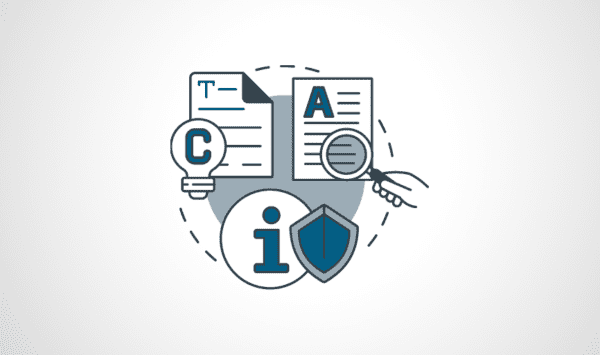
Though many scholars are tackling the problem of mis- and disinformation, some important dimensions of these processes are overlooked. Existing solutions largely focus on fact-checking or improving general media literacy, an approach which does not prepare social media users for emotionally-driven experiences. Solutions deployed in academic settings often also miss the opportunity to draw on local community knowledge or resources. At the Center for Media Engagement, related work has explored how public interest principles – what we refer to as ‘civic signals’ – can be incorporated into social media platforms.
In order to address this gap in digital literacy, the “Co-Designing for Trust: Reimagining Online Literacies with Underserved Communities” project has been chosen as one of the National Science Foundation’s (NSF) 28 multi-institutional teams for their 2021 Convergence Accelerator cohort. Under NSF’s “Trust & Authenticity in Communication Systems” track, Center for Media Engagement researchers are collaborating with The University of Texas School of Information, the University of Washington‘s Information School, the Center for an Informed Public, Seattle Central College, and Black Brilliance Research to plan and execute a series of community workshops to study and design for potential digital literacy interventions on a grassroots level.
The goal is to use participatory design to work alongside underserved communities in making locally-applicable solutions – tailored educational toolkits – that can be deployed within those communities’ contexts. This can set the stage for building community-oriented infrastructures.
The research team has completed four rounds of participant workshops focusing on the roles of critical reasoning, emotions, and sociocultural contexts in online exchanges of problematic information. In each workshop, participants identified existing informational problems within their community and brainstormed potential solutions.
Need for localized, personalized, sustainable, and scalable solutions
During workshops on critical reasoning, participants noted that problematic information sources ranged from family members to national news outlets and that in some specific cases, informational “voids” were filled by misinformation only because better or more reliable sources were unavailable. COVID-related misinformation was often mentioned, as well as other science issues such as climate change. Participants also named hate speech and prejudice as issues affecting information exchanges within their communities. To counteract these problems, participants emphasized the need for literacy interventions to be localized, relevant to community members’ lives, accessible and easily digestible, scalable, and sustainable. They noted that the people at the receiving end of interventions should not feel talked down to, and that their existing knowledge must be recognized by those intervening. For contexts outside of the classroom, participants suggested incentivizing or gamifying literacy interventions to increase voluntary uptake. In schools, rather than teaching information literacy as a separate course or curricular unit, they recommended it be addressed within diverse academic subjects. For all contexts, participants recommended establishing trust with less-charged topics before moving to polarized topics of national political importance. Above all, the need to leverage existing relationships and institutions to re-establish trust in information sources emerged as a central theme.
Centering emotional and affective dimensions of problematic information
The second round of workshops focused on how emotions affect exchanges of reliable and unreliable information. Participants echoed themes from earlier workshops but also introduced new ones: These included empathy as a starting point which can sometimes require significant emotional effort and control in situations otherwise marred or threatened by disagreement. Participants noted that some individuals have lower levels of emotional literacy than others, which can quickly problematize interactions where someone experiences a strongly triggered emotional response. Underlying all of these discussions was the issue of time: just how critical it is to actually have time to build authentic, trusting relationships, how time is often a scarce resource both for those doing the interventions well as audience members, and how interventions must be swift in permanently-changing informational ecologies.
The impact of sociocultural contexts
The third round of workshops focused on the ways in which sociocultural contexts factor into the sharing of and exchange over problematic information. Preliminary results show that some of the same themes are front and center on our participants’ minds: de-escalating and depoliticizing fact-checking, the time investment needed to build trusting relationships, integrating information literacy education into existing curricula, and building diverse online and offline communities that can support these efforts. Participants also expressed concerns about the digital divide and how it was worsened by the loss of in-person interactive spaces during the pandemic.
These preliminary observations across workshops point toward the strong need for fostering authentic, trusting, and humanizing relationships. In so doing, this project builds upon existing knowledge systems within marginalized communities. Through participatory design sessions (currently underway), these knowledge systems are factored into and synthesized toward design considerations, together with a diverse and multifaceted team of partners and participants who are contributing deep knowledge and expertise. As the project progresses, we aim to produce a toolkit incorporating products such as training programs for librarians and journalists, resources about emotional intelligence and content virality, and a dedicated online platform for local community members to share resources and fight misinformation in their neighborhoods.
We thank the many talented and dedicated researchers who joined the team from around the world. As we move into the participatory design work of Phase I, we are eager to continue learning from and working alongside our community partners towards the shared goal of improving information literacy and accessibility for all.




